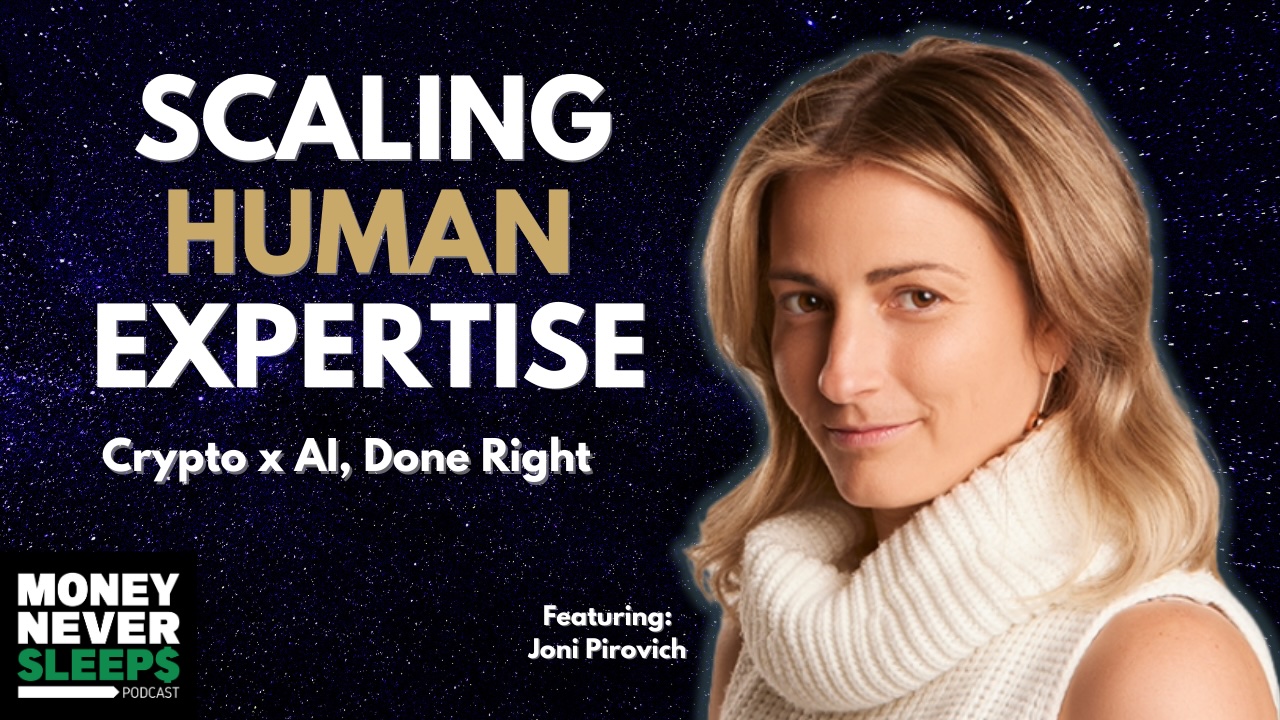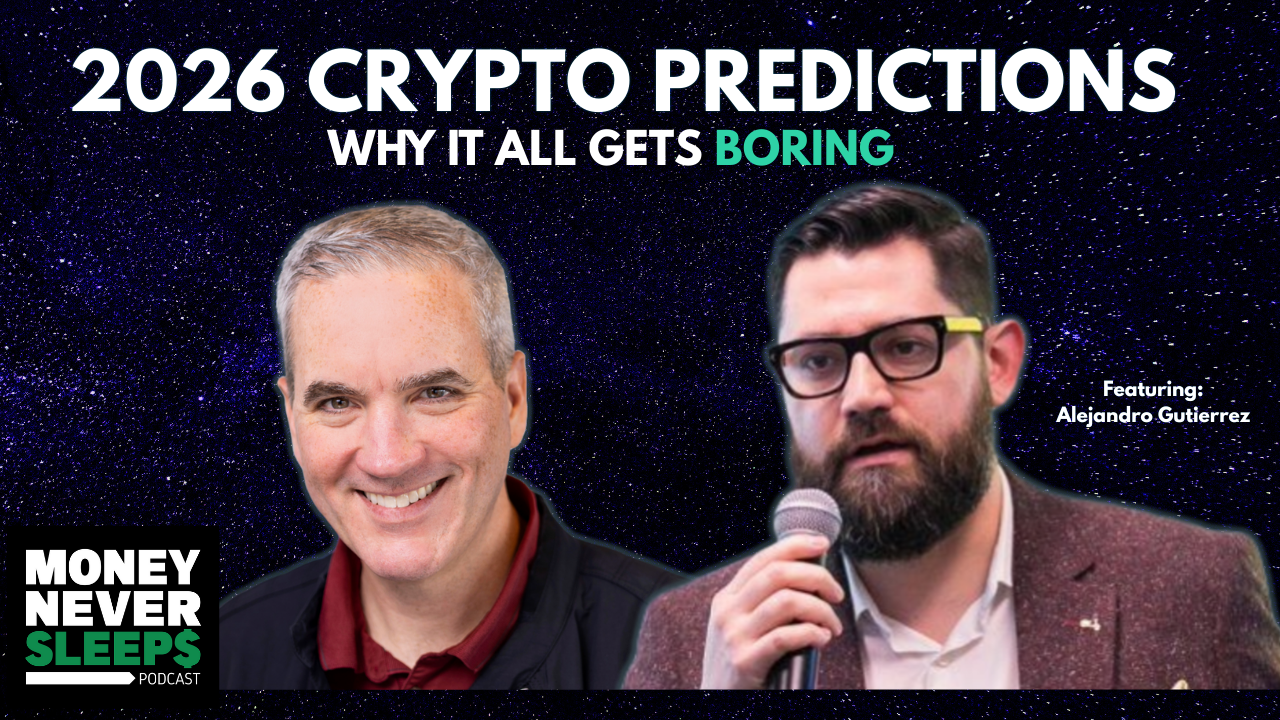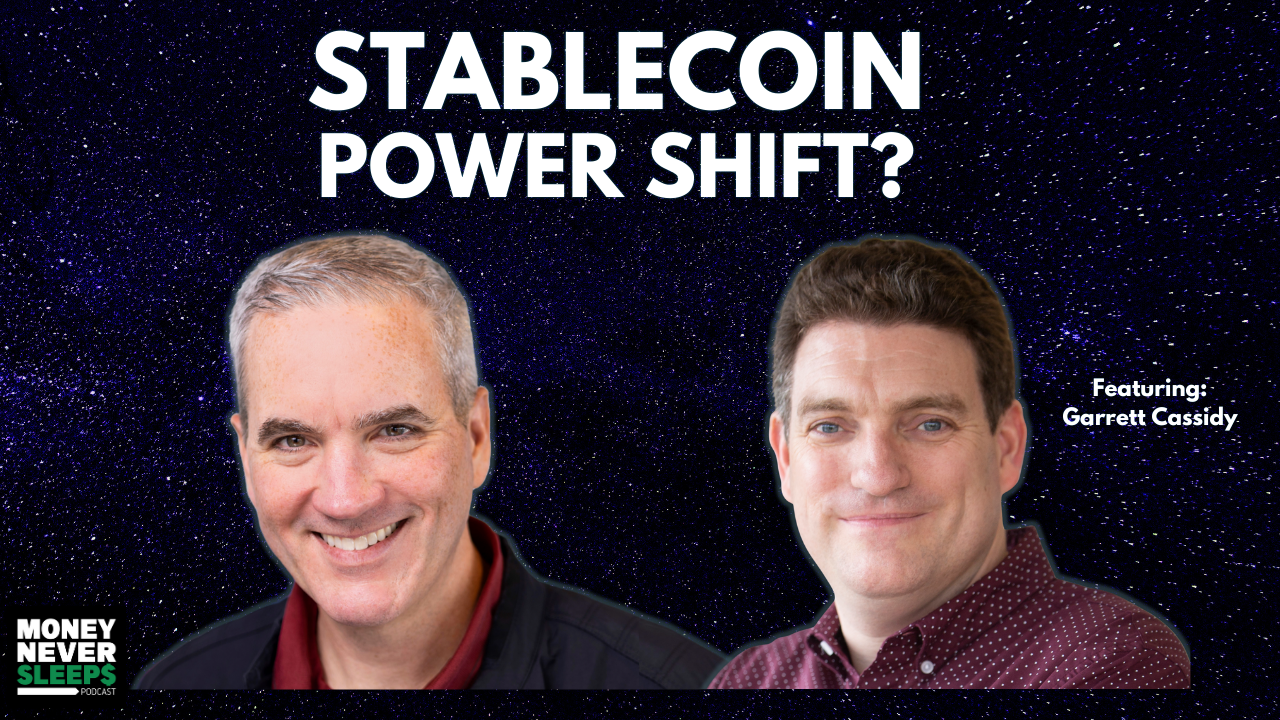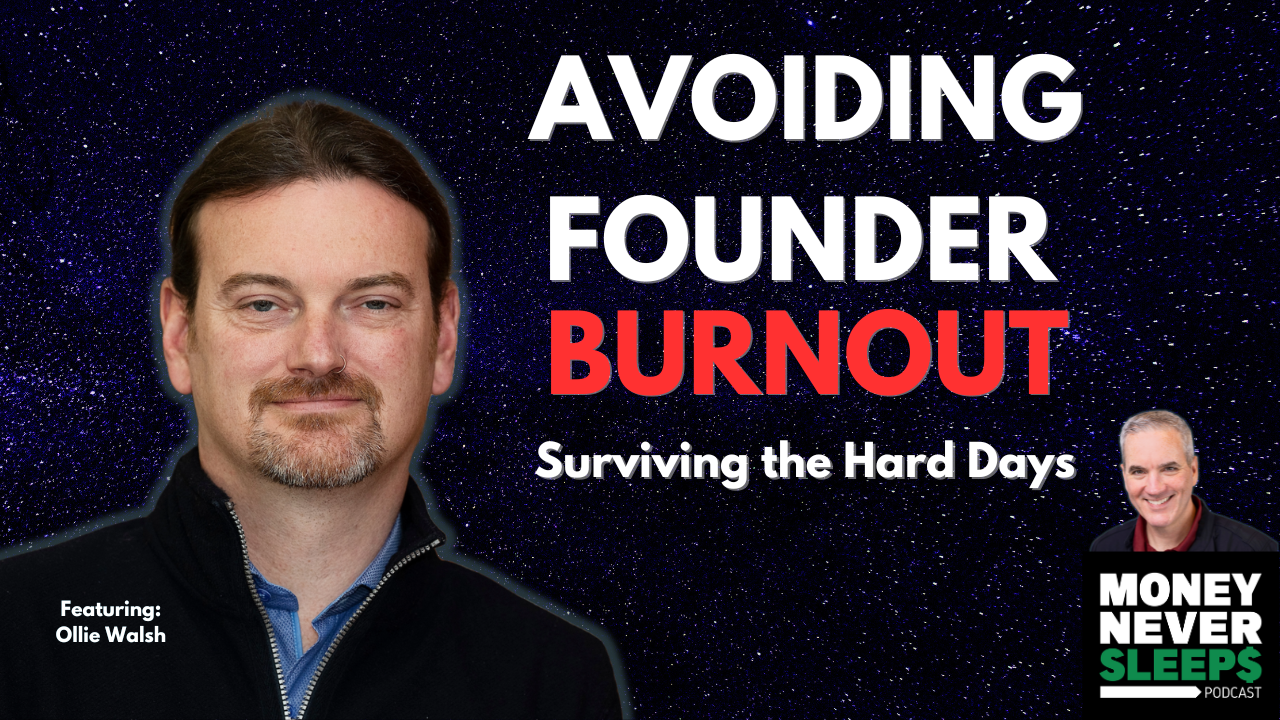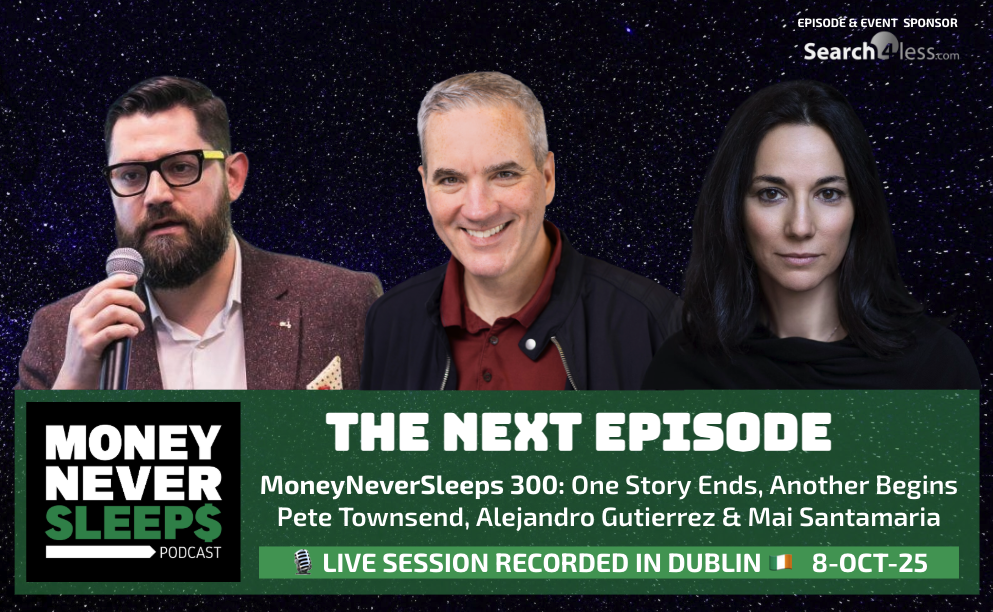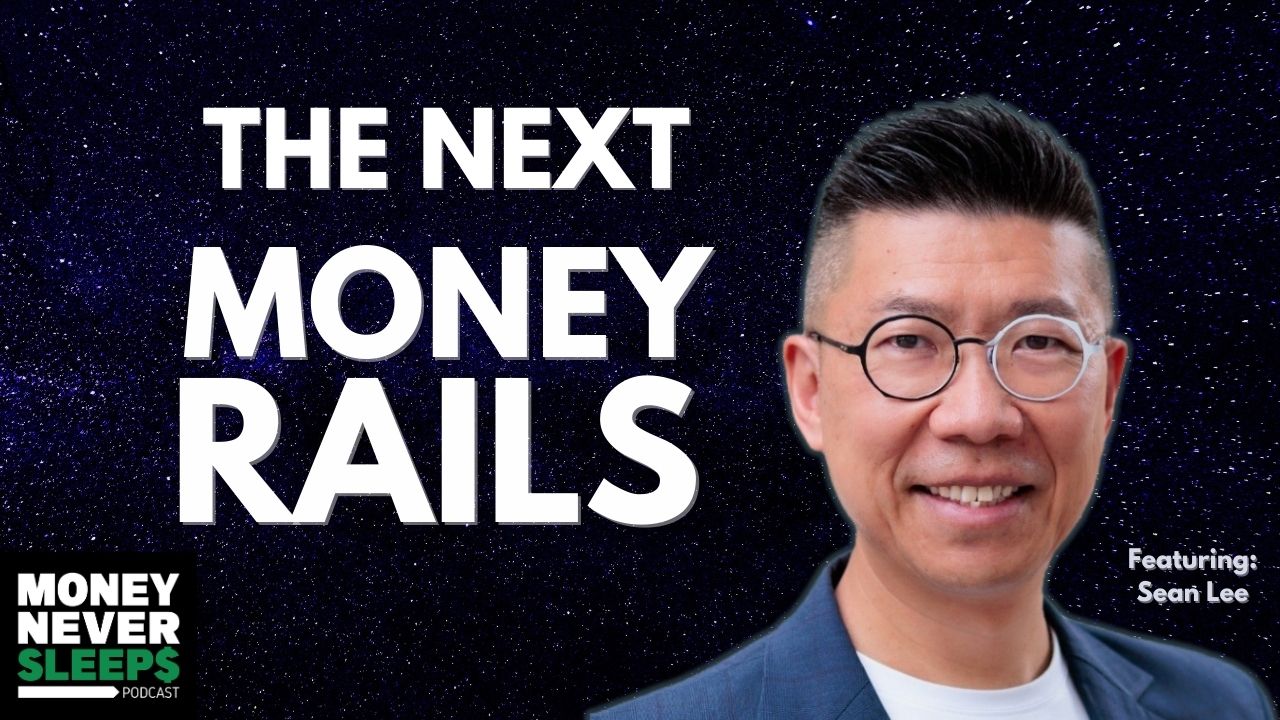163: Go! | Teana Baker-Taylor, Digital Assets and the Chamber of Digital Commerce


Teana Baker-Taylor is the Chief Policy Officer of the Chamber of Digital Commerce, the longest established trade body representing blockchain and digital assets. In this episode, Teana shares her story with Pete Townsend on her journey into blockchain and digital assets, her view on the critical focal points for the digital asset industry over the next few years, how she gives back as a mentor and advocate, and her view on what makes a great Web3 founder.
This episode of MoneyNeverSleeps is sponsored by Philip Lee, one of Ireland’s fastest-growing corporate law firms and expert advisors at the heart of the Dublin and London startup, fintech and crypto communities.
HIGHLIGHTS:
Teana Baker-Taylor on her leap out of institutional finance and into crypto:
“I was at HSBC as global head of client strategy for transaction banking and capital markets and I was working on a number of different proof-of-concept projects across enterprise blockchain. There was a lot I liked about the tech but working for a large financial institution back in the day was very slow going.”
“I had worked on a few financial inclusion projects and the one thing that I became really cognizant of is that to develop services providing better access to the underbanked, for example, it's expensive to develop value propositions and run them. You needed to have a flagship client or larger client base that's paying for the innovation and infrastructure build to get it off the ground, and that wasn't always lining up.”
“I felt that blockchain – from a technology perspective – can help solve a lot of these problems. They weren't mature yet, but the thing that was live and operating in the wild was crypto. So, I thought, yeah, I'm going to make the leap and start working in crypto full-time and I went to Coinfloor (a UK crypto exchange in 2018).”
On her entry point into the policy space in digital assets and blockchain:
“I was part of the founding team that set up Crypto UK, which is the UK’s trade body for digital assets. I also drafted written evidence on the benefits of crypto, which led to Coinfloor being asked to give evidence at the House of Commons Treasury Select Committee”
“This led to me acting as a resource for the UK Cryptoassets Taskforce, which emerged from those hearings, and we worked with the FCA, HM Treasury and the Bank of England. Simultaneously there was a tiny handful of people, maybe 15 or 20 of us, all talking to each other saying ‘this ICO (Initial Coin Offering) thing is going to be tricky’, and what could the industry do to self-regulate itself while policy was being developed?”
“So that turned into Global Digital Finance which now has hundreds of members and a global industry body that advocates for digital assets and blockchain with bodies like FATF, OECD and IOSCO at a global level, looking at cross-border policy and standards for crypto. I ended up leaving Coinfloor and running GDF for a couple of years.”
Teana Baker-Taylor on her approach to engaging with regulators:
“Most people that have a job like mine are lawyers, and I think I have a very different perspective because I have not been trained as a lawyer. I think about things from a commercial standpoint - which is, ‘what's the outcome that I want?’ and then work backward from that.”
“That's the way that I've approached working with policymakers. I think that because I don't go into these conversations feeling fearful, I go into the conversation feeling practical and pragmatic about trying to get to an outcome that I think is reasonable, that my message potentially lands differently.”
On the mission of the Chamber of Digital Commerce and the current situation:
“The Chamber of Digital Commerce is the longest established trade body representing blockchain and digital assets. It was established in 2014 by our founder, Perianne Boring, with a mission to promote the broad acceptance and use of crypto and blockchain technology.”
“Today we represent the world's leading innovators, operators, and investors in the blockchain ecosystem. Over the last couple of years, we have consistently advocated for regulatory clarity for digital assets to allow innovation to flourish which also takes into account consumer protection and market integrity.”
“The current legal uncertainty has been really treacherous for market participants, especially in the US. We’re seeing a lot of movement around people potentially leaving the US or setting up operations elsewhere to hedge against potential policy decisions that may be detrimental to innovation.”
“If that continues, it has the potential to really harm consumers, the market and innovation overall. We’re at a crucial inflection point within the regulatory landscape, not just in the US but across the globe. We are starting to see other markets get their arms around this, and I think that the markets that don't are really at risk of losing talent and tax income.”
Teana Baker-Taylor on the difference between the current bull market in crypto and the last one in 2017-18:
“With this bull market, compared to the last bull market, there’s a major difference in that the first bull market was really spurred on by speculation, the ICO boom, and then we had a bit of a correction, obviously.”
“The current bull market has been really spurred by building, by innovation, by cool stuff that you can use. If we do enter a correction or the market stabilizes, all of that stuff that's been built will still be there, and that’s materially different.”
On the focal points as we move ahead in digital assets and blockchain:
“I think a few things need to happen for us to really go mainstream. First, with our communication around why we're here, what we're doing, who benefits and how, it needs to be better and more consistent. We need to be able to tell that story succinctly to the press who influence the public and the policymakers, to consumers and to regulators. Also, we're better about it today than we were before, but we still have a lot of infighting amongst the industry and we're just still too small to be fighting with each other.”
“The second thing is, although the industry has matured around governance and accountability, we still have things happening in the DeFi space with rug pulls and there are still some shenanigans going on. It’s not as prolific as it was during the ICO boom, but for people to really trust in using some of these DeFi protocols, this stuff has to stop or at least be able to be managed through code reviews and governance mechanisms so that these things can't happen.“
“The third thing is, we need to do what we can do to remove the friction. For example, if I'm going to use a DeFi protocol to stake something or to request a loan, the end-to-end process has a lot of steps and it's not easy.”
“We also need to remove the friction from a regulatory perspective. We talk a lot about the technology that will allow us to manage AML (anti-money laundering) more effectively and to incorporate digital identity so that we don’t have to KYC (‘Know Your Customer’) people across all these platforms. This will really improve the way that we handle governance, AML and KYC.“
On the opportunity for women in digital assets and blockchain:
“Tech has been one of those areas like early finance, where for a myriad of reasons that are more related to sociology, haven't attracted women or haven't necessarily been welcoming to women. But crypto is one of these unique opportunities where everybody's new, as the industry has only been around for 10 years. There isn't this legacy old boy's network or a default to ‘this is the way we've always done things’.”
“I think it’s an incredible opportunity for anyone, but especially for women who may be looking at changing their careers and using skills that they've built in other areas to get involved in tech or finance, because this space is a really nice convergence of both.”
Teana Baker-Taylor on what she looks for in Web3 founders:
“The best founder stories that have moved me and tend to create emotions that get people excited about a project is when a founder solves a problem that they've experienced themselves. I think those stories are really powerful.”
“From a founder perspective, I would be looking for people who are really passionate about the problem they're trying to solve, and not necessarily the thing that they're trying to build. Sometimes, I think that people get their messaging a bit conflated.”
“My advice for founders is - tell me why this is important to you. I don't care about the thing that you're building. Tell me about the problem you're trying to solve. Who are you solving the problem for? Why has it been like this for this length of time? Why does this problem exist? What's the upside of solving this problem?”
“That’s how you get people to emotionally care about your project. Once that happens then you engender passion, whether that's from your team or your VCs or your co-founders. That’s the catalyst that propels startups into unicorns – it’s the passion piece.”
LINKS:
Episode title inspired by ‘Go’ by the Chemical Brothers featuring Q-Tip
Follow Teana Baker-Taylor on Twitter and learn more about the Chamber of Digital Commerce
Link to Chris Dixon and Naval Ravikant on the Tim Ferriss Show talking about Web3
Leave a review and subscribe on Podchaser| Apple Podcasts | Spotify| Google| Overcast
Check out our MoneyNeverSleeps website
Subscribe to our newsletter on Substack
Follow us on Twitter Podcast| Twitter Pete| Twitter Eoin
Get in touch at info@moneyneversleeps.ie
--- Support this podcast: https://anchor.fm/moneyneversleeps/support




















